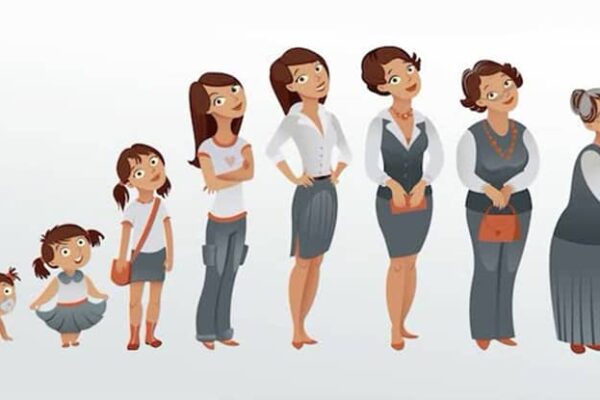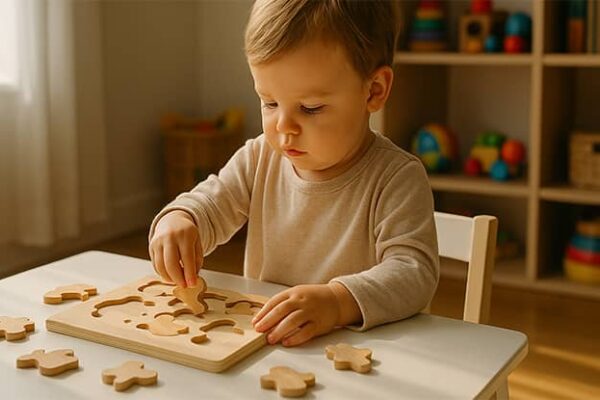The psychology of old age is a branch of psychology that studies the characteristics of mental development, processes and phenomena associated with age-related changes in a person in old age and old age. This area studies issues of psychological adaptation to aging, mental and emotional well-being, intergenerational relationships, and also develops methods and approaches to support the psychological health of older people.
The study of the psychology of old age in modern society is of particular importance for a number of reasons:
- Demographic changes. In many countries, there is a significant increase in the elderly population due to improved healthcare, living standards, and declining birth rates. An aging population can lead to serious social and economic consequences, such as increased costs for pensions, healthcare, and social security. Studying the psychology of old age helps develop strategies to address these challenges.
- Length and quality of life. As life expectancy increases, it is important not only to take care of the physical health of older people, but also to ensure their psychological well-being. The psychology of aging helps identify factors that contribute to quality of life in old age and develop effective approaches to improving psychological health.
- Supporting independence. The study of the psychology of old age allows us to identify ways to maintain cognitive functions and social activity of older people, which helps maintain their independence and activity in society.
- Intergenerational relations. Understanding the psychology of old age helps improve communication and understanding between generations, promoting harmonious relationships in the family and society.
- Professional training. The psychology of old age is an important area for training specialists in the field of psychology, gerontology, social work and medicine. Knowledge in this area will help professionals provide quality support to older people and their families.
Overall, the study of the psychology of aging plays an important role in modern society, as it helps to increase understanding of the aging process and adaptation to it, as well as to develop strategies to support the psychological well-being and quality of life of older people. This knowledge also contributes to the creation of a more humane, fair and inclusive society where older people can fully participate in society and maintain their activity, independence and dignity.

The main factors influencing psychological changes in old age
The main factors influencing psychological changes in old age can be divided into biological and social. Biological factors include the aging process of the brain, which leads to decline in cognitive functions such as memory, attention and processing speed. Also, with age, the likelihood of developing neurodegenerative diseases such as Alzheimer’s and Parkinson’s disease increases, which can cause significant psychological changes and deterioration in quality of life. In addition, age-related changes in hormonal balance and body structure can affect mood, emotional state, and activity levels.
Social factors also significantly influence psychological changes in old age. The transition to retirement, loss of loved ones, changes in social status and decreased social activity can cause stress, loneliness and depression. Intergenerational relationships and communication with loved ones are also important factors influencing the psychological state of older people. In addition, cultural and social norms, as well as stereotypes about aging, can determine the attitude of society and older people towards the aging process, which in turn affects their psychological well-being and adaptation to age-related changes.
Physiological changes
Physiological changes that occur with age affect various body systems and can affect the overall health, activity and quality of life of older adults. Here are some of the major physiological changes associated with aging:
- Musculoskeletal system: With age, muscle mass and strength decrease, joint flexibility and ligament elasticity decrease, which reduces physical activity and causes pain.
- Cardiovascular system: Age-related changes in the cardiovascular system include thickening and loss of elasticity of vascular walls, decreased cardiac output, and increased blood pressure. This often leads to the development of cardiovascular diseases.
- Respiratory system: Aging affects the reduction of lung volume, decreased elasticity of the bronchi and alveoli, which reduces breathing efficiency and contributes to the development of respiratory diseases.
- Nervous system: Age-related changes in the nervous system include loss of neurons, decreased speed of nerve transmission, and decreased neuroplasticity. It affects cognitive function, sleep, balance and motor coordination.
- Endocrine system: Aging leads to changes in hormonal balance, decreased metabolism and glucose regulation, which increases the risk of obesity, diabetes and other endocrine diseases.
- Digestive system: Age-related changes in the digestive system may include decreased gastric acid secretion, decreased intestinal motility, and impaired nutrient absorption, leading to dyspepsia, constipation, and vitamin and mineral deficiencies.
- Reproductive system: Aging suppresses the function of sex hormones, leading to decreased fertility, changes in the menstrual cycle in women and decreased sexual activity and potency in men. Additionally, in women, menopause can cause a number of symptoms associated with fluctuating estrogen levels, such as hot flashes, sleep disturbances, and mood changes.
In general, the physiological changes that occur with aging affect various aspects of the health and functioning of the body. Understanding these changes and taking steps to maintain health and well-being are important parts of maintaining quality of life in older age.
Social changes
With aging comes social changes that affect the lives of older people, their psychological well-being and interaction with society. Some of the major social changes associated with aging include:
- Retirement: The end of working life results in a change in role, status and social identity, as well as a decrease in income and loss of structure in daily life. This often causes stress and the need to adapt to a new lifestyle.
- Social isolation: In aging, due to decreased mobility or loss of interests and hobbies, the likelihood of social isolation may increase, which negatively affects psychological well-being and physical health.
- Loss of loved ones: As you age, the likelihood of losing close friends, spouses, or other family members increases. The process of accepting loss and grieving can be difficult and requires time, adaptation and support.
- Intergenerational relationships: Interaction with younger generations, including children and grandchildren, provides opportunities for sharing experiences, knowledge and emotional support. However, conflicts may arise due to different values, perceptions and expectations, which requires the establishment of intergenerational dialogue and mutual understanding.
- Social status and perception of old age: Old age is perceived differently in different cultures and societies. In some cultures, older people are respected and valued for their wisdom and experience, while in others they may face age discrimination and stereotyping.
Overall, the social changes associated with aging can present both challenges and opportunities for adaptation and growth. Adequate support from family, friends and society helps older people overcome the challenges associated with aging and adapt to new living conditions.
Active participation in social networks, involvement in volunteer activities, travel or educational programs help maintain the level of vital energy and peace of mind. Social changes associated with aging often provide new opportunities for self-development, acquiring new skills and knowledge, and strengthening connections with loved ones.
It is important to find approaches and strategies that will enable older people to adapt to social changes and maintain a high quality of life.
Cognitive changes
Cognitive changes associated with aging involve various aspects of mental performance and brain function. Some of the major cognitive changes that can occur during the aging process include:
- Decreased processing speed: Age affects the speed at which the brain processes information. This leads to slower reactions and reduced ability to make quick decisions.
- Working memory decline: Working memory, responsible for the temporary storage and processing of information, also declines with age. This reduces a person’s ability to perform tasks that require multiple factors to be considered simultaneously.
- Difficulty concentrating: As you get older, your ability to shift your focus decreases, leading to difficulty completing tasks that require a high degree of concentration.
- Long-term memory decline: As you age, you may have trouble encoding, storing, and retrieving information from long-term memory. This often affects a person’s ability to remember past events or learn new things.
- Decline in executive functions: Executive functions such as planning, organization, mental flexibility, and self-control also decline in old age.
It is important to note that cognitive changes may occur to varying degrees in different individuals, and many older adults continue to maintain high levels of cognitive function. A healthy lifestyle, physical and mental activity, social interaction and proper nutrition help slow cognitive aging and maintain good brain function throughout life.
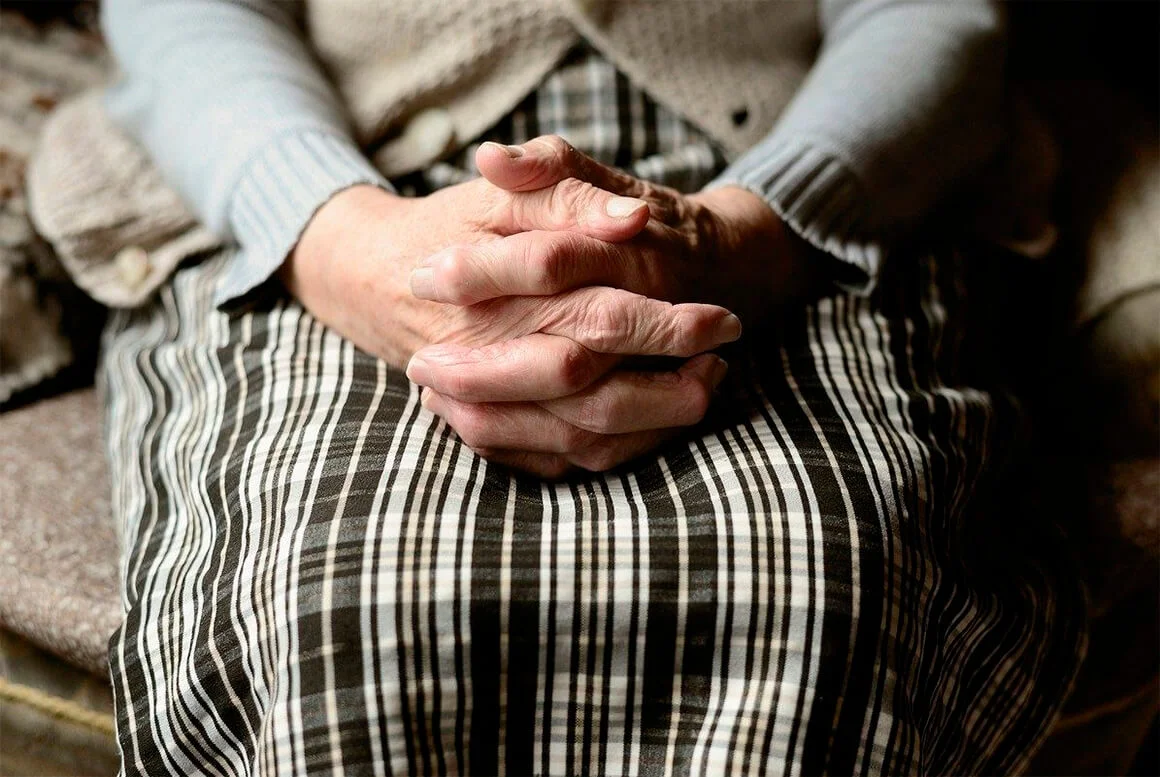
Psychology of old age: main factors
Psychological aspects of old age cover a wide range of internal processes associated with the experiences, feelings and self-perception of older people. One of the key points relates to accepting and adapting to the changes that occur in life as a result of aging. This includes changes in physical, cognitive and social functioning, as well as in self-esteem and perception of one’s role in society. Psychological flexibility and strategies to cope with age-related changes significantly determine successful aging and psychological well-being.
On the other hand, the psychological aspects of old age also include problems related to mood, emotions and mental health. Older adults face an increased risk of developing anxiety, depression, loneliness, and stress due to loss of loved ones, decreased functional independence, health problems, or other challenges associated with aging. Therefore, it is important to provide older adults with assistance that facilitates adaptation to new life circumstances and to develop individualized approaches to maintaining psychological well-being throughout the aging process.
Intelligence and thinking
Intelligence and thinking may change in old age due to age-related characteristics of cognitive functioning. In old age, differences are observed in two main characteristics of intelligence: crystallized and fluid.
- Crystallized intelligence refers to the accumulated knowledge, experience, and skills acquired throughout life. Crystallized intelligence typically remains stable or even increases with age as people continue to enrich their knowledge and understanding of the world throughout life. Older people often have a significant amount of knowledge and experience that they can pass on to younger generations.
- Fluid intelligence refers to the ability to think logically, solve new problems, and analyze new information independently of prior knowledge. Fluid intelligence typically declines with age due to slower processing and worsening working memory. This may cause difficulty performing tasks that require quick thinking and adaptation to new situations.
Despite age-related changes, many older people continue to maintain intellectual development. A healthy lifestyle, physical activity, social interaction and mental stimulation help slow cognitive aging and maintain brain health. Constant learning, reading, puzzle solving, art and other creative activities can also help maintain intelligence and thinking as we age.
Memory
Memory is an important cognitive function that allows us to retain, store, and retrieve information gained from experience and learning. In old age, changes in memory may occur that affect various aspects of this process. Memory is usually divided into several types, which differ in their duration and content.
- Short-term or working memory is the ability to temporarily store and manipulate a limited amount of information. As we age, working memory can decline, making it difficult to simultaneously remember and process new information.
- Long-term memory refers to the storage and recall of information over long periods of time. As we age, the processes of encoding, storing, and retrieving information from long-term memory may slow down, causing us to forget some details or events.
- Procedural memory is a type of long-term memory that relates to skills and automatic actions such as riding a bicycle or typing on a keyboard. In old age, procedural memory usually remains stable, and older people continue to perform familiar actions with some ease.
- Episodic and semantic memory. Episodic memory is concerned with storing information about personal memories and experiences, while semantic memory is concerned with general knowledge and facts. In old age, episodic memory may decline, especially when it comes to recent events, while semantic memory usually remains stable or even improves.
Physical activity, a healthy lifestyle, social interaction, stress reduction, a balanced diet, adequate sleep and memory exercises help maintain cognitive function and slow age-related changes in the brain.
Perception and attention
Perception and attention are important cognitive functions that enable older adults to become aware of and process information from the environment. With aging, changes in perception and attention may occur that affect older adults’ ability to respond to external stimuli and concentrate on tasks.
- Perception refers to the process of interpreting information received through the senses such as sight, hearing, smell, taste and touch. In old age, difficulties with perception may arise due to decreased sensitivity of the senses and slower processing of information. For example, older adults may experience decreased vision and hearing, making it difficult to perceive the world around them clearly.
- Attention is the ability to concentrate on a specific stimulus or task while filtering out irrelevant information. In old age, attention may be difficult due to deterioration of working memory and slower processing of information. Older adults may have difficulty focusing on one task or switching attention between different tasks. They may also have decreased ability to concentrate for long periods of time.
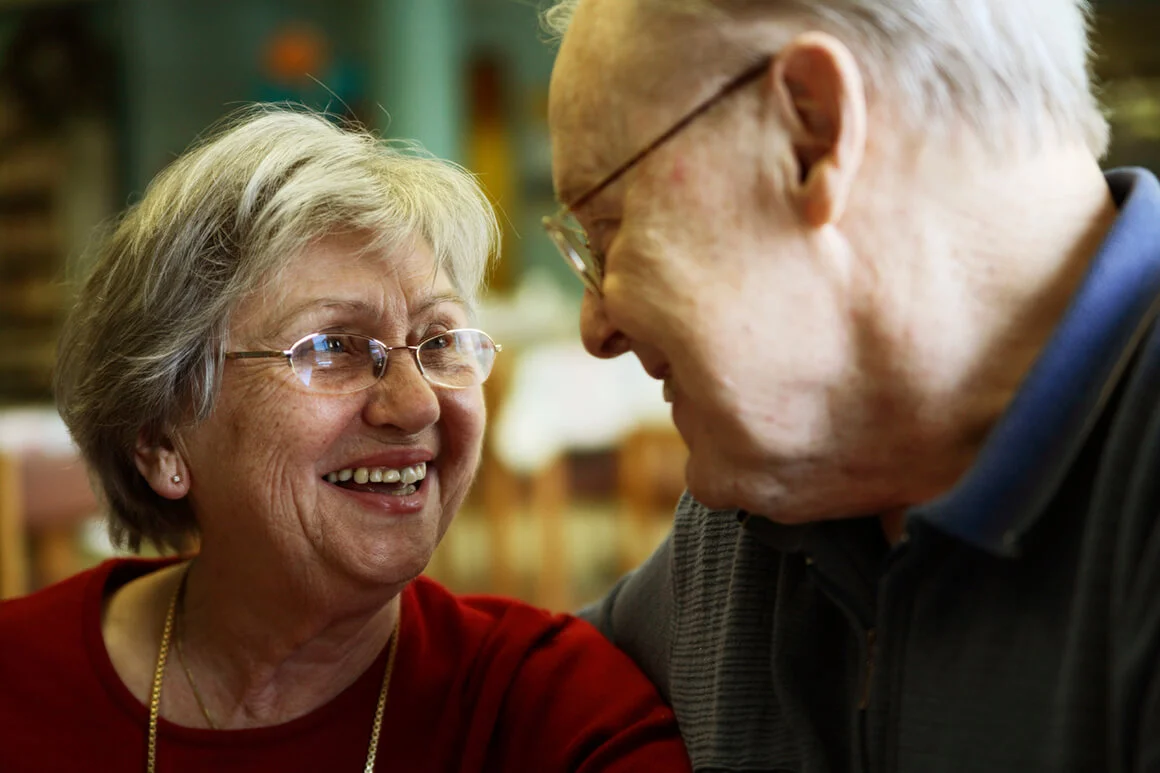
Emotional state of elderly people
Emotional state refers to a set of experiences, feelings and moods that influence an individual’s psychological well-being and social functioning. In old age, changes occur in the emotional state, which are associated with biological, psychological and social factors.
First, older adults often experience an increase in negative emotions such as anxiety, sadness, loneliness, or irritability due to age-related changes, loss of loved ones, declining health, or social isolation. At the same time, many older adults are resilient and adaptable, successfully coping with the challenges of aging by finding ways to maintain their emotional well-being. Some studies show that with age, life satisfaction may even increase and emotional stability may improve.
Secondly, with age, changes occur in emotional regulation, that is, the ability to control and manage one’s feelings. Older people often become more adept at managing their emotions and perceive their feelings as more stable and predictable. They can pay more attention to the positive aspects of situations, use their life experiences to solve problems, and build better relationships with others. Thus, emotional regulation and conscious management of one’s feelings can help maintain emotional well-being and improve quality of life in older adults.
Emotional stability and regulation
Emotional stability refers to an individual’s ability to remain balanced and calm in a variety of situations, minimizing the impact of negative emotions and stress on their behavior and well-being. Emotional regulation, on the other hand, is the process in which individuals control and manage their emotions in order to adapt to different circumstances and achieve their goals.
As people age, many people become more skilled at emotional regulation and develop strategies for coping with negative emotions and stress. They can focus on the positive aspects of situations, use their life experiences to solve problems, and build relationships with others. As a result, older people gain greater emotional stability and improve their psychological well-being.
However, it is worth noting that the ability for emotional regulation and stability varies from person to person and depends on many factors, including genetics, environment, personality and life experiences. Some older adults may have problems with emotional regulation due to cognitive decline, mental health problems, or difficult life circumstances.
Well-being and life satisfaction
Well-being and satisfaction are important indicators of psychological health and quality of life, especially in old age. Well-being refers to a state where a person experiences positive emotions and pleasure from his life achievements and good relationships with others. Life satisfaction is an individual’s assessment of his life as a whole, based on his own criteria and values.
Many factors influence the well-being and life satisfaction of older adults, including physical health, social support, economic stability, educational attainment, and cultural values. The importance of these factors may change throughout life, and what is satisfying in youth may not be as meaningful in old age.
As people age, they become more focused on the quality of their relationships, inner values, and spiritual aspects of life. They value small joys and achievements more, and find meaning and value in passing on their experiences and knowledge to younger generations. These changes contribute to increased life satisfaction and well-being in old age.
However, it is worth noting that the level of well-being and life satisfaction in old age can vary greatly from person to person. Some older people face serious challenges, such as declining health, loss of loved ones, social isolation or financial hardship, which can reduce their life satisfaction and well-being. It is important to create conditions that support the well-being of older people and provide them with opportunities for active, healthy and happy lives.
Fears and anxieties associated with the psychology of old age
Fears and anxieties related to the psychology of old age are common feelings that older people may experience. Some of the most common fears and anxieties associated with aging include:
- Declining health: Many older adults worry about possible health problems that can arise as a result of aging, such as chronic disease, a weakened immune system, and an increased likelihood of injury.
- Loss of independence: Fear of losing one’s independence due to deteriorating health, mobility, or cognitive abilities is one of the major concerns among older adults.
- Financial insecurity: As people age, many people worry about their financial stability, especially as they retire and have reduced income.
- Social isolation: Fear of losing social connections and a sense of belonging due to the loss of family, friends or neighbors can cause anxiety and loneliness.
- Memory and cognitive loss: Many older adults fear developing dementia or other cognitive impairment that could affect their ability to think, make decisions, and care for themselves.
- Death and loss of loved ones: The fear of one’s own death and the fear of losing loved ones are natural feelings that only intensify in old age.
- Age discrimination and stereotyping: Older people sometimes experience ageist prejudice and stereotyping, which can cause anxiety and negative self-image.
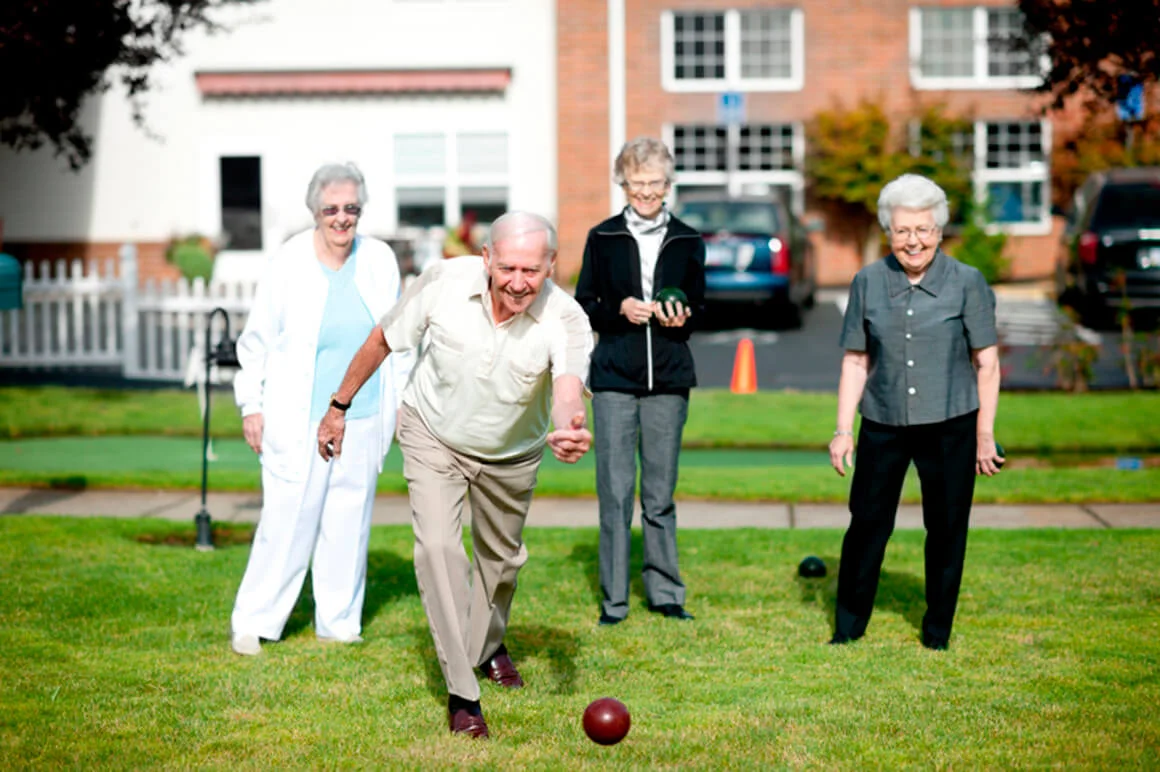
Psychology of social relations in old age
As we age, social relationships and networks undergo significant changes, which can affect anyone’s self-esteem, life satisfaction, and emotional well-being. The importance of maintaining healthy and active social connections for older adults cannot be understated, as they promote cognitive, emotional, and physical health.
As people age, many people experience changes in their social relationships, such as retirement, loss of a spouse or close friends, decreased mobility, or separation from children and grandchildren. However, aging offers opportunities to strengthen relationships with family, grandchildren, friends or new acquaintances. The ability to adapt to these changes and maintain social connections plays an important role in the psychology of old age and the well-being of older people.
Communication skills and social support
Communication skills, such as the ability to express one’s thoughts, feelings and needs, and to listen and understand others, are the basis of effective interaction in social relationships. Communication skills help you establish and maintain connections, resolve conflicts, and cope with stress.
Social support is the mutual help and support that older people receive from their family, friends and community. It can be emotional (such as compassion, love, and care), informational (advice, guidance, and feedback), or instrumental (financial assistance, provision of resources, or help with tasks). Social support has a significant impact on the psychological and physical health of older people, as it reduces stress, increases self-esteem, improves quality of life and prevents social isolation.
It is especially important for grandparents to have a variety of sources of social support, including family, friends, neighbors, and social groups or organizations. Participating in community events, interest groups, or volunteer activities helps them expand their social circle. Thus, communication skills and social support can be called, without exaggeration, key factors in the psychology of old age.
Family relationships and friendship
Family relationships and friendships play an important role in the lives of older people, having a significant impact on their psychological and emotional well-being. Family is often the main, and sometimes the only source of support, love and care. It also enables the transmission of cultural values, experiences and knowledge between generations. Interaction with children, grandchildren and other family members can bring joy, satisfaction and a sense of belonging, and also help older people cope with stress and overcome difficulties.
Friendship is also of great importance to older people. Friends can provide emotional support, empathy and understanding, and encourage participation in a variety of activities and interests. Friendships facilitate the exchange of information, ideas and advice, which are extremely useful for adapting to the changes associated with aging.
Strengthening family relationships and friendships improves quality of life, self-esteem and satisfaction in older adults. Using a variety of strategies, such as developing communication skills, participating in social activities, and maintaining an active lifestyle, can help maintain and strengthen family and friendship ties as you age.
The role of older people in modern society
The role of older people in society is varied and important. They make a significant contribution to the development of the economy, culture, education, etc. Here are some of the main roles of older people in the modern world:
- Experience and wisdom: older people have a wealth of experience and life wisdom to share with younger generations. Their knowledge and skills are especially valuable in family affairs, educational institutions or volunteer activities.
- Family support: as parents and grandparents, older adults provide support to their children and grandchildren by helping with upbringing, learning, and passing on family traditions and values.
- Economic contribution: many older people continue to work after retirement or engage in entrepreneurial activities, thereby contributing to the country’s economy. They are also often active consumers, investors and taxpayers.
- Volunteering and community involvement: older adults often engage in volunteer and community activities, helping local communities, charities, or simply neighbors. Such activity helps strengthen social connections and improves the quality of life.
- Cultural heritage: old people are the bearers of cultural heritage and traditions that are passed on to younger generations. They also become active participants in cultural life, for example as spectators, artists or writers.
- Role models: grandparents who demonstrate active and healthy aging serve as role models for younger generations, showing them how to overcome challenges and adapt to the changes associated with aging. They inspire younger people to lead healthy lifestyles and be active in their communities.

Typology of old age
The typology of old age is often determined on the basis of various factors such as age, health status, activity level and social circumstances. Below is one of the most common typologies of old age:
- Early old age. This period covers ages 60 to 74 and is characterized by relatively good health, activity and level of independence. At this time, people often end their professional activities and begin to enjoy retirement.
- Middle age. The age group is 75 to 84 years, when diseases, chronic conditions or functional limitations may occur. During this period, it becomes especially important to maintain physical activity, social connections and take care of your health.
- Late old age. This period begins at age 85 and continues until the end of life. At this age, people are at increased risk of serious illness, functional limitations, and cognitive decline. Help and support from family, friends and concern for social integration become especially important.
- Healthy aging. This typology describes older adults who maintain good physical, mental, and social health throughout aging. They lead active lifestyles, participate in social events and maintain a high level of independence.
- Prosperous old age. This type of aging is characterized by high levels of life satisfaction, well-being, and social connections. Older people in this category have good adaptation to aging, they successfully cope with stress and enjoy everyday life.
- Unfavorable old age. This typology is characterized by physical and mental health problems, social isolation and low levels of life satisfaction. Older adults in this category have difficulty adjusting to aging, may have problems relating to others, and need additional support and assistance.

Strategies for adaptation to old age
Adaptation to old age may include a variety of approaches aimed at maintaining physical and mental health, as well as strengthening social connections and satisfying intellectual needs. To maintain physical health, it is important to maintain a healthy lifestyle, including regular exercise, proper nutrition and sleep patterns.
Exercises such as yoga, swimming and walking help maintain flexibility, strength and endurance. A balanced diet rich in fruits, vegetables, grains and lean proteins helps improve overall health and slow down the aging process.
Social adaptation also plays a significant role in successful adaptation to old age. Maintaining and developing social connections with friends and family can help combat feelings of loneliness and isolation that can come with old age.
Participating in various social and cultural activities, such as clubs, volunteering, or joining groups of people with common interests, helps strengthen connections and enrich the spiritual world.
In addition, it is necessary to maintain intellectual activity through reading, learning new skills or being creative. Mental stimulation helps maintain mental clarity and prevent the possible development of cognitive impairment.
Psychological flexibility and reframing
Psychological flexibility and reframing are important tools for adapting to old age because they help you understand and accept the changes associated with age, as well as rethink your views and expectations. Psychological flexibility refers to the ability to adapt to changing life circumstances, accept new roles and responsibilities, and be able to cope with emerging emotional challenges. Developing psychological flexibility helps improve mental well-being, reduce stress, and increase life satisfaction.
Reframing, or rethinking, is the process of changing the perspective of perception of a situation or event in order to find more positive aspects and meanings. In old age, reframing is useful for overcoming stereotypes about aging, as well as accepting the limitations and losses associated with age. For example, rather than focusing on physical limitations or role loss, aging can be seen as an opportunity for self-development, deep relationships, and passing on life experiences to younger generations. Thus, psychological flexibility and reframing help to form an adaptive attitude towards old age, increasing the quality of life and facilitating the transition to a new life stage.
Stress management and embracing change
Stress managment and embracing change are key to successful aging. They help maintain emotional and mental well-being, which contributes to satisfaction with life and health in old age.
To manage stress, it is helpful to develop a set of strategies that may include various techniques such as meditation, yoga, breathing exercises and progressive muscle relaxation. Such practices help reduce anxiety, improve sleep and improve overall well-being. In addition, organizing your leisure time, finding hobbies and spending time with friends and family can also help reduce stress and improve emotional well-being.
Accepting the changes associated with aging requires us to adapt to new circumstances and losses, such as changes in physical capabilities, retirement, or the loss of loved ones. The ability to accept and adapt to these changes allows you to maintain a positive attitude towards life and deal with difficulties that arise. Understanding your own limitations, developing emotional resilience, and being attentive to your own needs helps you better cope with change and maintain quality of life as you age.
Social network development and support
Developing a social network and support plays a critical role in successful aging as it helps strengthen social connections and reduce feelings of loneliness. Social contacts and mutual assistance facilitate adaptation to changes associated with the psychology of old age and help maintain mental and emotional well-being.
To expand your social network in old age, you can use various strategies:
- Active participation in community life and volunteer activities helps create new social connections and strengthen existing ones.
- Joining interest groups, such as clubs, clubs or classes, allows you to find like-minded people and share experiences.
- The use of technology such as the Internet and social media makes it easier to stay in touch with friends and family, especially if they live at a distance.
Social support, which includes emotional, informational, and practical assistance, is an important resource for coping with the difficulties and challenges of aging. Open communication with loved ones, discussing your experiences and needs, and asking for help when necessary helps strengthen relationships and improve your quality of life. Developing emotional flexibility and the ability to accept support are also important aspects of aging well.
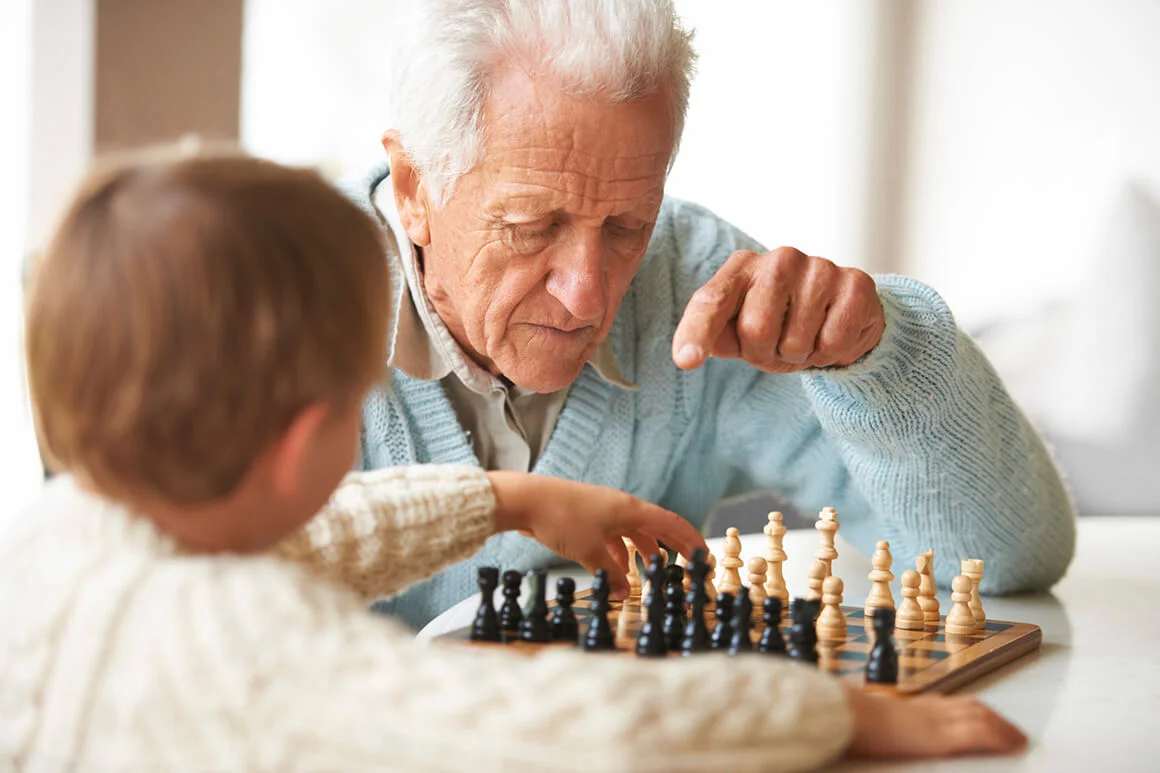
Practical recommendations for maintaining mental health in old age
Regular participation in cognitively stimulating activities helps maintain mental clarity and prevent cognitive decline. Reading, solving puzzles, learning new skills or languages, and creative activities stimulate intellectual activity and maintain good mental health.
It is also helpful to participate in educational programs or courses designed for older adults to promote ongoing development and learning.
It is important to develop and use stress and emotion management strategies as they help maintain emotional well-being and reduce the negative effects of aging experiences. Meditation, yoga, breathing exercises and relaxation techniques can help relieve stress and improve your mood.
Communicating openly with friends and family, seeking social support, and expressing your feelings are also important components of emotional well-being as you age. We should not forget about the importance of physical activity, proper nutrition, and quality sleep, as they directly affect the mental health and general well-being of older people.
Cognitive stimulation and lifelong learning
Cognitive stimulation and lifelong learning play an important role in maintaining mental health and cognitive function in old age. This activity helps strengthen neural connections, slow down potential cognitive decline, and increase life satisfaction.
Cognitive stimulation involves a variety of activities that challenge your mind and activate different areas of the brain. I have already mentioned examples of such activities earlier in this article – reading, solving puzzles and crosswords, playing musical instruments or drawing. Experimenting with new interests and hobbies can also stimulate cognitive function and enrich the lives of older adults.
Continuous learning is the process of constantly updating knowledge and skills, which allows you to adapt to changes and remain intellectually active. This is especially important in old age, since learning new things contributes to the development of cognitive plasticity and improvement of memory and attention functions.
Examples of lifelong learning may include learning new languages, computer skills, attending educational lectures, or participating in specialized courses and workshops. These activities help maintain social engagement and become a source of pleasure, while providing intellectual stimulation and cognitive development.
Examples of involving older people in public life
- Volunteering: participating in local volunteer organizations or projects, such as helping to improve parks, working at charity events, or helping those in need.
- Educational programs: attending lectures, seminars or courses organized by universities, libraries or cultural centers that offer educational programs for older people.
- Interest groups: joining clubs, clubs, or groups that bring together people with common interests, such as crafts, playing a musical instrument, dancing, or gardening.
- Sports activity: participation in sports activities organized specifically for older people, such as yoga, swimming, walking or group classes at fitness centers.
- Religious and spiritual practice: active participation in religious communities, attending services, participating in prayer groups and spiritual seminars.
- Cultural events: visiting concerts, exhibitions, theaters and cinema, as well as participating in cultural festivals and master classes.
- Social clubs and organizations: participate in local social clubs, retirement organizations, or civic initiatives that focus on aging issues and the well-being of older adults.
- Travel and excursions: participating in organized group travel or excursions designed for seniors can help you learn, make new friends, and share experiences.
- Mentoring and knowledge transfer: active participation in mentoring programs, teaching young people their skills and transferring life experience and knowledge.
- Assistance to grandchildren and the younger generation: participation in the lives of your grandchildren, assistance in their education and development, transmission of family traditions and values, as well as active communication with young people, allows you to maintain social connections and stay informed about important events even in old age.


